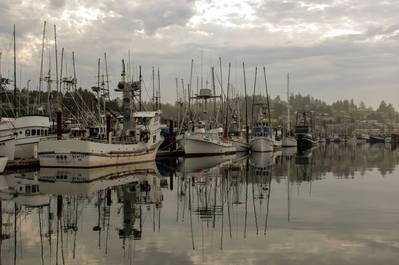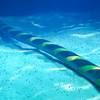USCG Needs to Do More to Improve Fishing Vessel Safety - GAO
The U.S. Coast Guard must do more to improve safety in the extremely dangerous commercial fishing industry, according to a new report from watchdog agency the U.S. Government Accountability Office (GAO).
Commercial fishing has one of the highest industry death rates in the U.S., according to the U.S. Bureau of Labor Statistics. Since fiscal year 2011, multiple commercial fishing vessel safety requirements have been enacted. As the principal federal agency for ensuring marine safety, the U.S. Coast Guard is responsible for implementing statutory requirements related to fishing vessel safety.
The Coast Guard examines fishing vessels' documents and safety equipment, and conducts outreach to fishers, among other efforts, but it hasn't fully implemented 17 of 22 statutory requirements to improve commercial fishing vessel safety, GAO found. For example, the Coast Guard hasn't developed a training program for commercial fishers or reestablished an advisory committee on industry safety issues. In addition, the Coast Guard doesn't have a detailed plan to guide their efforts to fully implement the outstanding statutory requirements.
Coast Guard efforts to promote commercial fishing vessel safety include conducting dockside exams, engaging with industry, and collaborating with other federal agencies. A dockside exam includes a review of a vessel's documents and safety equipment. Vessels that successfully complete an exam receive a 2-year safety decal from the Coast Guard. In addition, the agency engages with industry through safety trainings and policy letters, among other efforts. The Coast Guard also collaborates with other federal agencies, such as the National Marine Fisheries Service, by sharing accident data and supporting vessel safety research.
The Coast Guard fully implemented five of 22 key statutory requirements related to various aspects of commercial fishing vessel safety (e.g., equipment, training, exams) enacted from fiscal years 2011 through 2021. However, it has either partially or not implemented 17 requirements.
One requirement that the Coast Guard does not intend to implement is to develop alternate safety standards for older fishing vessels, which account for almost 80% of fishing vessel losses. The Coast Guard stated it does not have the authority to address the requirement to develop alternate safety standards for older fishing vessels. However, based on GAO's review of the applicable statutory provisions, the Coast Guard does have the authority to implement this requirement.
In June 2016, the Coast Guard issued a proposed rule intended to address nine of the other 16 outstanding requirements. However, as of August 2022, the rule had not been finalized, and the Coast Guard had no detailed plan for implementing these requirements.
Developing and implementing alternate safety standards for older vessels and developing a plan with time frames for implementing the other 16 requirements would help to address the Coast Guard's statutory responsibilities and support efforts to prevent fishing vessel losses and related fatalities, GAO said.
While the Coast Guard has established strategic goals and performance goals for its commercial fishing vessel safety program, GAO found it has not fully incorporated other key performance management practices, such as establishing performance goals that fully address all aspects of its strategic goals, setting realistic targets for its performance goals, and using performance data to assess progress towards program goals. Fully incorporating such practices could help the Coast Guard better assess program performance and address any performance issues, GAO said.
GAO issued six recommendations to the Coast Guard, including to implement alternate safety standards for older vessels, develop a plan with time frames to implement the other outstanding statutory requirements, and fully incorporate key performance management practices. DHS concurred with five of six recommendations.














